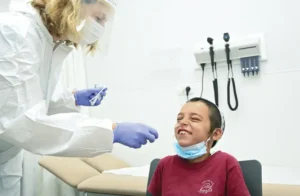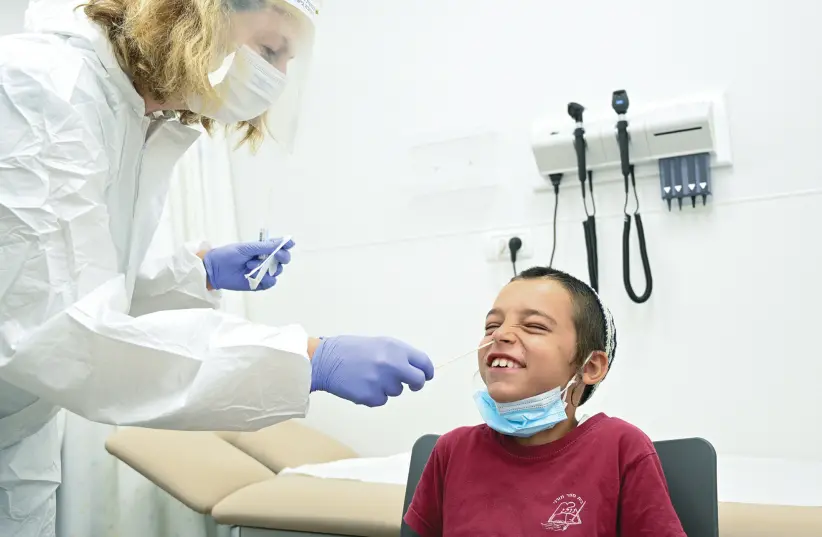In the largest worldwide study on unvaccinated children and teens, researchers found those who had been previously infected with COVID had a natural immunity between 80% and 89% for 18 months.

Children and teens infected with COVID-19 gained strong natural protection against reinfection with effectiveness levels of about 80% for at least 18 months when tested in a large, preliminary, non-peer-reviewed worldwide study on unvaccinated kids conducted in Israel and published Thursday in Medrxiv.
The study was conducted by Kahn-Sagol-Maccabi (KSM), the research and innovation center of Maccabi Healthcare Services.
“Naturally acquired immunity in children and adolescents was found to be robust and long-lasting, which aligns with what we have witnessed in our day-to-day clinical practice,” said Dr. Tal Patalon, head of the Kahn-Sagol-Maccabi (KSM) Research and Innovation Center.

Patalon, a researcher and doctor who has been treating patients with COVID since the pandemic began, noted that the research focuses solely on the Delta variant of the virus.
“The demonstrated long-term protection of naturally acquired immunity during the Delta variant has important public health implications,” Patalon said. “Although I assume naturally acquired immunity will remain significant against the Omicron variant, this is currently under further research.”
“Naturally acquired immunity in children and adolescents was found to be robust and long-lasting, which aligns with what we have witnessed in our day-to-day clinical practice.”
Dr. Tal Patalon
Study method and results
Researchers analyzed data from March 2020 to December 2021, using anonymous records of 300,000 unvaccinated children over age five who had performed a PCR test for SARS-CoV-2 when rates of Delta were skyrocketing.
The team concluded that the unvaccinated children and teens who had been previously infected showed natural immunity effectiveness levels of between 80% and 89% for at least 18 months. The effectiveness ranged from 89% for the first three to six months after the first infection falling to 82% during nine-12 months after infection and then remaining at around 80% for the remainder of the research.
Those aged five to 11 actually showed no significant decline in protection against reinfection during the study, according to the findings. Those aged 12 to 18 showed slightly lower, but still strong, natural immunity levels during the study.

